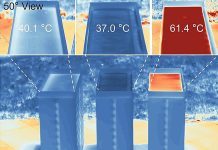
Exploring the shadows cast by the catastrophic incident at the Fukushima Daiichi Nuclear Power Plant in March 2011, new research points to a potential and somewhat unexpected health concern – a connection between low-dose radiation exposure and an increased risk of diabetes.
Bridging the Link Between Radiation and Diabetes
In a recent study presented at the Annual Meeting of The European Association for the Study of Diabetes (EASD) in Hamburg, Dr. Huan Hu and Dr. Toshiteru Ohkubo from the Japanese National Institute of Occupational Safety and Health have brought attention to a possible link between exposure to low doses of radiation and a heightened risk of diabetes.
This focus is notably crucial, given that the comprehensive understanding of the impact of low-dose radiation on diabetes development is yet to be solidly established in scientific circles.
Back in 2014, a research initiative named the Epidemiological Study of Health Effects in Fukushima Emergency Workers (NEWS) was set up.
Its objective was to unravel the long-term health repercussions of radiation among those who responded to the Fukushima disaster.
The researchers focused on a group of 5,326 male emergency workers, scrutinizing their health and radiation exposure levels closely.
Over a span of nearly a decade, from 2012 to 2021, 392 of these workers developed diabetes, identified through various markers like fast plasma glucose levels and HbA1c levels, or through self-reported diagnoses.
In this careful analysis, the researchers discerned that workers exposed to moderate levels of radiation (between 5 and 49 millisieverts [mSv]) had an elevated risk of developing diabetes compared to those exposed to lower levels (0-4 mSv).
Surprisingly, workers exposed to 50 mSv or higher did not demonstrate this elevated risk, although the researchers attribute this to a smaller sample size and caution against dismissing potential risks at higher radiation levels.
Unraveling the Underlying Mechanisms
Though the pathways through which radiation may elevate diabetes risk remain to be fully understood, Dr. Hu offers some insights.
Radiation may negatively impact pancreatic cells, which play a pivotal role in insulin production, thereby setting the stage for diabetes.
Additionally, a correlation exists between radiation exposure and increased inflammation, a recognized contributor to insulin resistance and diabetes development.
In Europe, to give a contextual understanding, individuals are naturally exposed to varying annual background radiation levels, from around 2.7 mSv in the UK to over 7 mSv in certain Finnish demographics.
Medical procedures also expose patients to radiation, for instance, a single chest X-ray exposes an individual to roughly 0.1 mSv, while some scans like PET scans expose them to significantly higher levels, like 25 mSv.
Treading with Caution: Acknowledging the Study’s Limitations
It’s paramount to note that this research reveals an observational association, not a direct cause and effect relationship between radiation and diabetes.
The authors underline several limitations, including a lack of data differentiation between diabetes types and potential inaccuracies in measurements that could skew the perceived link between diabetes risk and radiation exposure.
Moreover, potential selection bias, given that only 30% of emergency workers participated in the NEWS study, and information bias due to the retrospective design, warrant cautious interpretation of the results.
In closing, the authors express their profound gratitude towards the emergency workers of the Fukushima incident.
Their brave endeavors during the crisis and their willing participation in research initiatives like NEWS substantially contribute to the global understanding of radiation’s health effects, ensuring learnings are garnered from the shadows of the Fukushima incident.
As research continues to delve deeper into these links, ongoing follow-ups with NEWS participants and further studies promise to cast more light on the nuanced impacts of low-dose radiation exposure on diabetes risk, thereby enhancing our strategies in managing public health, especially amidst nuclear emergencies.
This serves as a vital stride not only in comprehending the aftermath of nuclear incidents but also in safeguarding the health of those who step forward in times of such crises.
If you care about diabetes, please read studies that MIND diet may reduce risk of vision loss disease, and Vitamin D could benefit people with diabetic neuropathic pain.
For more information about diabetes, please see recent studies that Vitamin E could help reduce blood sugar and insulin resistance in diabetes, and results showing eating eggs in a healthy diet may reduce risks of diabetes, high blood pressure.
Follow us on Twitter for more articles about this topic.
Copyright © 2023 Knowridge Science Report. All rights reserved.



